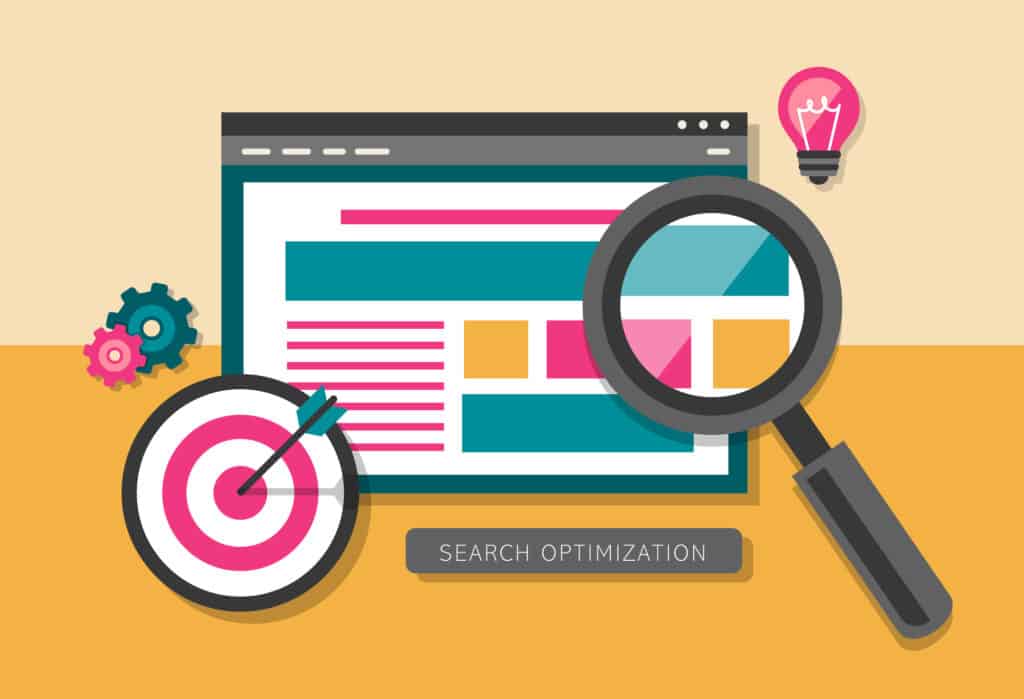Google is now your mother. Eh? What? Well, that’s what their new algorithm would leave you thinking. It’s time to get your head around Google MUM. But first, a little bit of history and why Google MUM is so important…
Google itself is something that has been a household name for approaching a quarter of a century – wait, what? That can’t be right.
Yup, that’s correct – Google isn’t far off its Silver Jubilee (as of July 2021). Feeling old, yet?
More On This Subject From DRPT
Are Spelling And Grammar Important For SEO?
The Importance Of Tracking Your Website Metrics
What Is EXIF Data?
Google has been with us since January 1996 as a research project, and officially as an incorporated business since September the 4th, 1998. The search platform has seen us through The Sopranos, The Wire, Breaking Bad, and Game of Thrones. It’s witnessed fashion trends, one-hit wonders, and global events come and go. It’s been with us every step of the way in our modern history.
First engaging with humanity during the Acid-washed Denim days of floppy discs, dial-up internet and cassette decks, Google has since ballooned into the giant we all know and worship, especially when it comes to matters of SEO (Search Engine Optimization).
Despite my doting on it, Google has changed immeasurably in that time period, even if it doesn’t appear so; considering the homepage is nearly-as-dammit identical to how it first presented itself to us way back in 1998.
Google has launched an incredible roster of products too, from Google Earth and their acquisition of YouTube in 2006, to creating their own web browser (Chrome) and even their own operating systems.
Things sped up even further when Google went to compete against Amazon’s Alexa with Google Home, and embarked on the glorious journey of A.I, or Artificial Intelligence to the rest of us.
Give us the low down on Artificial Intelligence then…
The Lowdown On A.I
A.I, despite being a space-age phenomenon that immediately sparks ideas of HAL 9000 from Stanley Kubrick’s 2001: A Space Odyssey, is actually ever-present around us today. Google uses it, Spotify uses it, Tesla uses it, to name just a few.
Yet, we have barely scratched its shiny surface. Two years ago Google unveiled a major update to its search algorithm and it was called BERT. BERT wasn’t named after the Sesame Street character (if only) but instead stands for Bidirectional Encoder Representations from Transformers. That’s a fun sentence.
What it actually meant is that Google’s ability to decipher what your input into the search bar meant increased drastically. Computers don’t typically understand human language, so for a computer to understand the millions of nuances of our various languages, a freight train load of code needs to be written to help it understand what we mean.
For example, we could input the search query: “what does nine to five mean?” To humans, it would be seemingly obvious as the word “to” in this context would immediately tell us this is a working reference in regards to a nine in the morning to five in the evening work pattern.
However, to a humble computer, it could be misinterpreted as the time nine minutes to five. Food for thought.
Think of it as what double-entendres are to us. Even humans can make a hash of it, for example there was this following headline to an article once upon an internet: “Panda mating fails: veterinarian takes over”. Naturally, there is an obvious meaning, however, the comedic value of the sentence never fails to crack a laugh.
So BERT contextualizes small nuances in vocabulary to give you more useful search results based on what you actually mean, even though what you have typed is far from inaccurate. Yet this was two years ago, and we all know that tech doesn’t like to remain stagnant for more than 30 seconds.
So how does Google MUM fit in with all of this?
This is where Google MUM comes in. Get pumped for another acronym. MUM stands for Multitask Unified Model. Slightly less of a handful than BERT, but not far off.
Google has played its cards, unsurprisingly, close to its chest, and a cheeky look inside their research papers reveals scant details on it. Thankfully, some lovely people have done the research for us and it reveals some rather exciting developments with their algorithm.
In short, MUM is allegedly 1000 times more powerful than BERT. The key to this mammoth increase in power is multitasking. We’ve been able to multitask on computers for many years, it’s true, however, when it comes to search queries this is far from the case.
If you are looking for particularly niche results, the words you input have to be carefully chosen, and even then the right content may not appear until several searches later.
Give us an example of Google MUM in its natural habitat…
Google MUM: What Is It?
With Google MUM, a longtail-keyword search with complex differing queries will give you the results you are looking for. The example query Google used when unveiling the technology in March was: “I’ve hiked Mt. Adams and now want to hike Mt. Fuji next fall, what should I do differently to prepare?”
Quite a complex search request, with multiple unique aspects of the query itself. Google needs to pick apart that it’s a hike, make the hiking aspect relevant to both locations and notice that the user is requesting to understand the differences they will need to make in order to facilitate the next hike at Mt. Fuji.
Google MUM smashes it out of the park, as you would expect with a keynote presentation, and gives the user incredible insight into a myriad of differences they need to be aware of to successfully prepare for their trip to Mt. Fuji.
In a nutshell, Google MUM ensures that your search results are accurate when there is no simple answer. It’s one step closer towards search engines offering expert-level answers.
The grand aim for Google’s Multitask Unified Model is to reduce the number of searches required to get things done. Perhaps it’s therefore quite fitting to abbreviate the algorithm into ‘MUM’, as the system helps you when you struggle.
Google ‘DAD’ would most likely suggest inappropriate search terms before telling you to ‘ask your mother.’ But then again, when it came to searches like ‘good places to bury a body’ or ‘best ways to add LSD to your teacher’s food’, Google DAD would have some sterling suggestions.
However, I digress…
Google MUM: Removing The Language Barrier
One of the greatest barriers to human communication is language. Contrary to the unofficial American and British guide for travelling in foreign countries, speaking LOUDER and SLOWER does not aid understanding.
Google MUM is now tackling this language barrier for complicated online searches. Like the powerhouse MUM will prove itself to be, Google MUM can transfer knowledge across different languages online.
Sticking with the hiking Mt.Fuji motif, say there’s some really helpful information about Mt. Fuji but it’s in Japanese – of which you don’t speak. Chances are, you wouldn’t find this information unless you searched in Japanese.
You could be missing out on essential safety advice only the locals know. Google MUM can bring this information to you, even though it’s not written in the same language as your search term. The translation service to decode your page is already something Google offers. So you don’t need to worry about that. What an age we live in.
Not only that, but MUM can transfer knowledge from sources across all languages, and then use those insights to bring you the best results in your native tongue.
For us geeks, that’s properly mind-blowing. Cocaine ain’t got nothing on Google MUM. This step forward will not only allow online cultures to mix, but we can all learn from one another – despite not speaking each other’s languages. Epic!
Google MUM Acts Responsibly
With all this advancement in A.I, it’s hard not to panic about the fate of humanity. Bots taking over. The elimination of mankind and the barren destruction of earth has never looked much fun in the movies. There’s no musical numbers or anything.
It should therefore come as a blessed relief to hear Google state a message of calm and responsibility about Google MUM. After all, making information more accessible always brings an element of danger – as there are people out there who simply cannot be trusted.
Here’s a quote from Google about their attitude regarding MUM:
“Whenever we take a leap forward with AI to make the world’s information more accessible, we do so responsibly. Every improvement to Google Search undergoes a rigorous evaluation process to ensure we’re providing more relevant, helpful results. Human raters, who follow our Search Quality Rater Guidelines, help us understand how well our results help people find information.
Just as we’ve carefully tested the many applications of BERT launched since 2019, MUM will undergo the same process as we apply these models in Search. Specifically, we’ll look for patterns that may indicate bias in machine learning to avoid introducing bias into our systems. We’ll also apply learnings from our latest research on how to reduce the carbon footprint of training systems like MUM, to make sure Search keeps running as efficiently as possible.
We’ll bring MUM-powered features and improvements to our products in the coming months and years. Though we’re in the early days of exploring MUM, it’s an important milestone toward a future where Google can understand all of the different ways people naturally communicate and interpret information.”
What Does This Mean For My Website?
Okay, so we can see how important and great Google MUM is. But what does that mean for your healthcare website?
In essence, it means that you should be easier for people to find! With all those complicated healthcare diagnosis searches and answers to be given, the Google MUM update (which is 1000 times more powerful than BERT, remember) will be able to comprehend every aspect of the question and therefore point people in the direction of your website.
Well, if you have content that addresses the search term, that is. And don’t think the usual SEO rules don’t apply, you still need to be blasting out content over 1500 words per article.
While Google MUM hasn’t been rolled out to the masses quite yet, it’s definitely coming. And to get yourself prepared and take advantage of the oncoming update, we would recommend getting new blogs written to address questions asked by searchers on your services.
Need some help gearing up to tackle Google MUM? Reach out to us through our contact page. We can help!














